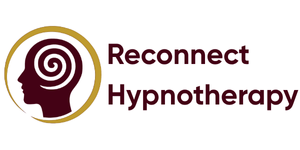Quit Smoking and Vaping
Hypnotherapy in Western Sydney
Enquire Now
Release the Habit - Embrace Life
Cigarettes hook the mind before the body—which is why patches, gum, and vapes often fail. They target nicotine, not the subconscious habit that drives the urge.
At Reconnect Hypnotherapy, Leonie uses a proven one-session protocol to break the smoking pattern at its source: the subconscious mind. Once the habit loop is released, nicotine loses its grip, making quitting easier and lasting.
This approach—known as smoking hypnosis—targets the triggers behind your cravings, helping you reclaim control, improve your health, and dramatically lower your risk of cancer and other serious conditions.
“Smoking isn’t really an addiction to nicotine—it’s an addiction to the habit. Once the addictive pattern is released at the subconscious level, the nicotine is no longer an issue.”
Leonie

Why Hypnotherapy to Quit Smoking Works When Other Methods Don’t
Patches, gum, and vapes target the body’s chemistry. Hypnotherapy communicates with the subconscious mind—the part that runs automatic behaviours like lighting up when you drive, after meals, with coffee, during stress, or on breaks.
- Addresses triggers and rituals (stress, boredom, driving, social cues)
- Dissolves anchors (coffee → cigarette, phone call → cigarette)
- Rewrites identity (from “smoker” to “non-smoker”) and beliefs (“a smoke calms me”)
- Reframes stress responses so your body and mind may settle without nicotine
- Hypnotherapy can suggest new, healthier responses to triggers, helping to eliminate cravings and reinforce positive habits
Hypnotherapy communicates with both the subconscious and unconscious mind, introducing positive suggestions that help align your intentions and behaviours for lasting change.
“Unlike counselling or psychology, which work with the conscious mind, hypnotherapy communicates directly with the subconscious where the problems are based. By addressing the unconscious mind, hypnotherapy works to reduce the desire for cigarettes and shift motivations toward healthier behaviours. That’s why it may achieve results much more quickly.”
Leonie
Preparing for Hypnotherapy: Setting Yourself Up for Success
Quitting smoking begins with commitment and the right support. Before starting your hypnotherapy sessions, it’s important to understand how the process works and how to set yourself up for success.
A qualified hypnotherapist will guide you into a deeply relaxed, dream-like state where your subconscious mind becomes open to positive suggestion. This is where lasting change occurs—old habits are released, and healthier patterns take root.
If you’ve experienced anxiety or panic when quitting in the past, hypnotherapy can ease those feelings and make the transition smoother. Techniques like neuro-linguistic programming (NLP) can further strengthen results by reshaping how you think and respond to smoking triggers.
At Reconnect Hypnotherapy, sessions are personalised to your goals and experiences, ensuring you feel supported every step of the way. With the right mindset and expert guidance, you can break free from the habit, reclaim control, and start living a healthier, smoke-free life.

The Reconnect One-Session Quit Protocol (with Backup)
Most clients quit in one session. If you ever need support, there’s a free follow-up—even years later.
“If someone does need a follow-up, it’s included at no extra cost. That’s my guarantee.”
What this means for you
- Walk in a smoker, walk out a non-smoker (that’s what clients often report)
- No white-knuckling: the urge may simply drop away as triggers are released
- Safety-first: deeply relaxing, with clients remaining in a state of awareness throughout the session, fully aware, and safe to drive home after
“Clients often say it’s easier than they ever imagined—like walking in a smoker and walking out a non-smoker.”
Techniques Leonie Uses to Break the Smoking Loop
Addiction-release protocols
Target the habit circuitry directly
Timeline Therapy
Release limiting beliefs, keeping the habit in place
Regression therapy
Resolve root associations (stress, reward, identity)
NLP processes
Collapse triggers and craving anchors
Phobia & stress processes
Reduce anxiety spikes that once prompted a smoke
EMDR-inspired techniques
Calm the nervous system and de-link urges
Suggestion therapy
Reinforce the non-smoker identity and future pacing
Sessions are personalised after a brief consultation: your history, triggers, motivations, and past quit attempts inform the exact approach, resulting in a high-level, tailored intervention.

“People usually finish a session feeling relaxed, refreshed, or energised—it’s a lovely feeling to come out of hypnosis.”
What to Expect on the Day (Step-by-Step)
- Conversation & plan – We map your triggers (coffee, driving, stress, social), your “danger times,” and your reasons for stopping—health, family, money, freedom.
- Education – What hypnosis is (and isn’t), how the process works, and what you may feel.
- Comfort – You sit in a recliner, close your eyes, relax, and allow yourself to enter a trance—a deeply relaxed, focused state that helps facilitate positive change.
- Therapeutic work – As you listen to the hypnotherapist’s guidance, we communicate with the subconscious to disconnect triggers, reframe stress responses, and install the non-smoker identity.
- Lock-in & future-proof – We build confidence for future situations (holidays, pubs, long drives) so the decision holds.
- Back in the room – You return feeling calm, clear, and often energised—fully alert and safe to drive.
Overcoming Obstacles: Navigating Challenges on Your Quit Journey
Quitting smoking is a journey, and like any meaningful journey, it comes with its own set of challenges.
One of the most common obstacles is dealing with cravings and withdrawal symptoms, which can sometimes feel overwhelming. Hypnotherapy offers powerful tools to help you manage these moments, making it easier to stay on track and move toward a smoke-free life.
Through hypnotherapy, you can rewire your subconscious mind, replacing old smoking habits with healthier, more positive behaviours. For many, the smell of cigarette smoke can be a potent trigger, tempting you to light up again. Hypnotherapy can help you associate the smell of cigarette smoke with unpleasant outcomes—imagine linking it to the harshness of truck exhaust—so that the urge to smoke fades away.
Support is another key ingredient for success. Surround yourself with friends, family, or a support group who understand your journey and can offer encouragement when you need it most. Guided imagery and coaching, often used in hypnotherapy sessions, can help you visualise your smoke-free future and reinforce your commitment to quitting smoking.
Remember, every step you take brings you closer to a healthier, smoke-free life. It’s normal to face ups and downs along the way, but with persistence, patience, and the proper support, you can overcome any obstacle. Hypnotherapy, combined with practical strategies and a strong support system, empowers you to break free from smoking for good and enjoy all the benefits of a smoke-free life.
Results You May Notice After Hypnotherapy to Quit Smoking
Cravings quieten or fail to appear at the usual times
The taste/smell of cigarettes may feel unappealing, and many notice that cigarette smoke smells as unpleasant as truck exhaust or other strong odours
Stress responses shift—you breathe or pause rather than reach for a lighter
More energy and easier breathing within days
Money saved and momentum to improve fitness and health
Compared to the ongoing adverse effects of smoking, a smoke-free life brings significant improvements in well-being, finances, and daily comfort.
Psychotherapy to Quit Smoking vs Hypnotherapy: What’s the Difference?
Psychotherapy to quit smoking explores patterns, emotions, and coping strategies at the conscious level.
Hypnotherapy to stop smoking works directly with the subconscious habit loop, which is why many smokers feel change more rapidly. There is a claim that hypnotherapy can achieve results more quickly than psychotherapy, but evidence supporting this may vary.
A combined approach may be ideal for some: psychotherapy to build insight and life skills; hypnotherapy to switch off the urge and recode triggers.

Who This Is For
- You’ve tried patches, gum, prescription meds, or vaping—but these methods have failed to help you quit smoking, and the habit returned
- You’re sick of the smell, the cost, and planning your day around a smoke
- You want to stop without weight gain driven by stress snacking (we’ll address that cue)
- You want a clear, decisive quit with backup support if ever required
“I’ve worked with truck drivers who smoked 70 cigarettes a day. They quit in one session and never looked back—no cravings, no withdrawals.”

Case Studies: Real Stories of Quitting Smoking with Hypnotherapy
Jim’s story is an example of successful smoking hypnotherapy.
Jim was a long-haul truck driver who chain-smoked his way along the Sydney to Melbourne route, up to 70 cigarettes a day.
After just one hypnotherapy session, he quit with ease. The cravings disappeared. He could still join his mates at the pub, even while they smoked, and it no longer affected him.
Years later, Jim remains a committed non-smoker.
FAQs: Hypnotherapy to Quit Smoking
Do most people quit in one session?
Yes—typically one session. A complimentary follow-up is available if needed.
Will I still get cravings?
Many clients report that cravings drop away because the triggers are released at the subconscious level. If any linger, your follow-up may tidy them up.
Is hypnosis safe?
Yes. It’s a deeply relaxing, natural state—similar to meditation—where you remain aware, in control, and safe to drive afterwards.
How is this different from vaping or nicotine replacement?
Those target nicotine. Hypnotherapy addresses the automatic habit patterns and emotional anchors underneath the urge.
What if stress made me smoke?
We include stress- and nervous-system-calming processes so your body can settle without cigarettes. You’ll also learn simple tools (breath, micro-pauses, self-hypnosis).
Will I replace smoking with food?
We proactively break the “hand-to-mouth” link and reframe reward signals to avoid substitution snacking.
In-person or online?
Both. Sessions are available in Western Sydney or online Australia-wide. For online clients, preparatory course materials or videos may be provided to help you feel confident and ready for your session.
Is hypnotherapy a medical treatment?
How We Make Your Quit Stick (Long-Term Maintenance)
- Trigger audit: Identify your top 5 cue moments (morning coffee, commute, post-meal, drink with mates, stress spike).
- Trigger re-coding: Replace each cue with a fast, calming alternative (breath reset, shoulder roll, water sip, short walk).
- Identity shift: Reinforce “non-smoker” as the default—so willpower isn’t required.
- Future pacing: Mentally rehearse tricky scenarios (holidays, parties, grief, high workload) with non-smoker responses.
- Relapse buffer: Your complimentary follow-up exists as a safety net. Knowing it’s there tends to make it unnecessary.

Why Choose Reconnect Hypnotherapy
- Decades in caring professions + many years in clinical hypnotherapy
- Unique processes developed through the Academy—modern + time-honoured methods
- Tailored sessions (never one-size-fits-all) for smoking, anxiety, trauma, weight, and gambling; sessions can also address issues rooted in childhood experiences, supporting inner child healing where relevant
- Calm, supportive care focused on rapid, durable change
- A track record of long-term non-smokers who check in months or years later with success
“Sessions are always personalised and adapted to each individual’s needs, using both modern, cutting-edge methods and traditional, time-proven techniques to create the gold standard of hypnotherapy.”
- Leonie
Your Next Step
This is your clean-break moment. Make the decision once—then let your subconscious do the heavy lifting.
